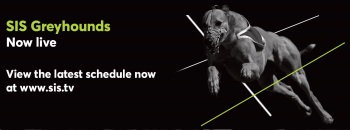Ten things you will never hear on a dog track:
1) This game is definitely on the up
2) At least the racing manager treats all trainers the same
3) No, I’m happy with the prize money
4) I heard a fair and balanced opinion on a forum yesterday
5) In my view, a track promoter is entitled to make a profit
6) Met some protestors outside and they didn’t lie or exaggerate
7) Injuries don’t worry me
8) Protect those punters, outgrade the pups!
9) I’m off to have a bet with one of the eight track bookies
10) My trainer was in a good mood this week
Greyhound folk are a miserable lot. We are a miserable lot!
I guess the pessimism is understandable when you have seen an industry recede by 80% in 60 years. To continuously witness a decline in the number of dogs, tracks, owners, trainers, breeders, bookies, punters and enthusiasts, and we haven’t even touched on professionalism, innovation and style.
Before you know it, you are bouncing your head off a padded wall and that nice nurse has hidden all the pointy things.
The bad attitude is clearly all down to a shortage of money.
Hmm. . . . .
As previously observed, one of the great idiosyncrasies about 2018 is that greyhound racing has received more bookmaker funding than ever before.
We have seen SIS ploughing millions and making huge differences to the livelihoods of a large number of owners and trainers. While the GMG tracks have dug deep to compete, some even borrowing to remain competitive.
It hasn’t actually solved anything has it?
No – it isn’t (entirely) about money.
I reckon there have be at least two hefty kicks to the industry unmentionables in 2018.
The first was the loss of Towcester.
The second has been the decimation of the open race calendar due to:
- i) the loss of SKY coverage (though how big a loss? I suspect folk are still remembering its glory days, and not how ordinary it was at the end).
- ii) the inevitable increase in quantity over quality as open racing withered and graded racing proliferated.
The loss of SKY led to less exposure for the top racers and their connections, and let’s face it, everybody likes their day in the sun.
Plus, the lack of national TV coverage saw sponsors (the big betting firms) stop answering their phones.
BUT let’s not rewrite history here. The ‘big SKY night’ business model was as full of holes as the roof on Wimbledon’s main grandstand.
Not only had it been reliant on BAGS (castrated in the media rights war), to fund the supporting races, the tracks were doing their brains by hosting SKY meetings anyway!
The general consensus among the promoters was: “We’ll run them out of duty/obligation to the industry, but we do our brains every SKY meeting”
So let’s return to the classic example of the problem – the 2018 St. Leger.
Yes it has been talked about before, but not in this context.
So Perry Barr leaseholder GRA Acquisitions decide to budget £12,500 into seven high quality opens which might otherwise have cost them around £2,000 in graded racing.
The benefits in terms of additional racegoers and admissions, would have been practically ZERO, particularly since two of the meetings were in the afternoon.
It is true that the track didn’t attract a sponsor – all of which acted as ammunition for the GRA haters – but let’s take another reality pill!
It is common knowledge that the PB management tried, but were ultimately unsuccessful, in persuading a local company to pay for the rights.
But even then, the net gain to the prize fund would have been minimal.
How many major sponsors are out there wanting to advertise to a betting shop audience on a TV screen that might at any stage switch to all-weather camel racing?
‘Ah! but what about RPGTV?’
Well here we have contrasting views, because at one level, I am told from a very good source that RPGTV applied to Perry Barr to broadcast the event but were turned down.
However, the same source also conceded, “We don’t have the money. Anyway, the bookies aren’t bothered about big races. They would rather have a graded race from Sheffield”
Hence a stand-off.
Promoter: “If I am funding this competition, why should I give it you for free? So Betfair can make bigger profits?”
RPGTV: “We are skint mate. Anyway, we are doing you a favour by broadcasting it.”
It seems that RPGTV will have extra money for 2019, though how much and where it will be spent is anyone’s guess.
The way I see it, everyone accepts that the prestige events are paramount to greyhound racing surviving.
95% of the lower base of the pyramid is only created because the top 5% exists. (There are 15,000 failed Derby winners bred every year.)
RPGTV might not provide the level of quality of SKY in terms of picture production (no HD for a start) and the content varies greatly.
BUT – it is the only game in town. And I reckon we have at least another year before the current media rights battle plays out.
Returning to the premise that that top tier racing is vital in terms of the long term engagement of owners, trainers and breeders, can RPGTV better fill the SKY role?
The first step is a greater dialogue between RPGTV and the racecourse promoters, though that may take some doing.
The GBGB might be prepared to hold the coats, but they will never have the authority to dictate terms to the racecourse promoters. Despite the drivel you may read on social media, they simply do not have that power.
Can you imagine the Football Association trying to dictate commercial decisions to the top Premier League clubs?
The other issue is clearly money. In the long term, you cannot have the major events being run for £5,500 to the winner.
And it has every chance of getting worse. I predict there will be a string of competitions with reduced prize money next year.
Will the media campaign to boycott the St.Leger be extended to other competitions in the future – or is it just an anti-GRA thing?
Money has to be found for open race competitions that matter more to the industry as a whole, than they do to track profitability.
Provided the promoter’s make a contribution, it is surely in everyone’s best interest that GBGB offer additional financial support for the most important and prestigious events.
They could be decided by a panel involving owners and trainers representatives. Events like the Derby, Oaks and TV Trophy would have a cash supplement.
What about support for every hurdle and marathon open? Both specialities are struggling to survive.
This would require a significant change in policy since GBGB does not support open race prize money.
It was one of the very few things that I had issue with John Haynes about when he was a Board director.
John’s view was that the entire prize money grant should go to graded racing, ‘the opens can look after themselves’.
Given SKY coverage and supporting sponsorship at the time, I can partially concede he had a point.
But things have changed. There is no SKY or big race sponsorship.
The problem is, money is tight. The big players, bar Bet365, have reneged on their promises to pay into the Fund on their internet business.
Plus, given the Board’s escalating welfare bill, it is cash strapped to honour its Greyhound Commitment.
So where might the cash be found for an open race support fund?
1) Scrap the owners bonus competitions – however the Board might have already beaten me to it. The cash is apparently being re-channelled into urgent welfare projects within the Greyhound Commitment.
2) More controversial, is an idea by Shawfield RM Daniel Rankin. He argues that GBGB could save a small fortune by reverting back to its original drug testing strategy at ‘point of entry’ registrations.
The original plan was to collect a urine sample from every dog arriving from Ireland at the time of registration. Those samples would only be analysed if the dog subsequently failed a drug test and the trainer claimed the animal was given the substance while in Ireland.
This is particularly relevant with substances such as Laurabolin, which is still used legally in Ireland to prevent bitches coming into season.
Then, in a change of policy, the Board apparently determined that they should pay for every sample to be analysed before the dog raced.
Rankin claims that in the last two years, he has only witnessed three occasions where the trainer needed to call on the initial sample to prove his innocence and two of those were for Laurabolin.
Rankin argues that since the GBGB already used guidelines for how long a substance stays in the body, there is an automatic protection for the trainer.
If a trainer is able to state when he believes the drug was administered, add up the days until it is due to clear the system and test again. In the case of Laurabolin it is apparently 100 days.
If he is not sure, or does not trust the info from the vendor, then count the entire period of 100 days that the dog has been in his care. If the substance is still present, then call an enquiry.
Although some would view scrapping automatic screening as a retrograde step for both welfare and integrity, Daniel Rankin’s view does seem worthy for debate.
Why?
Well GBGB don’t divulge how much a drug test costs, but the figure of £40 is often bandied about and seems reasonable. Multiply that by 7,000 Irish registrations and you arrive at a saving of around £280K.
3) Ask GBGB to scrap the enforced Irish transfer of ownership fee. A dog purchased from Ireland arrives with its identity book, which has already been paid for by the owner/breeder. Why can’t the dog simply be registered by the new owner – rather like a car with a log book? Keep the fee normally paid over to the ICC.
Whether the Irish Coursing Club could survive the loss of around £150,000 per year would be a big concern however.
4) Take £1 from every fiver currently paid by GBGB towards the prize money of every graded runner.
It isn’t quite that simple of course. Given the huge proliferation in graded racing this year, it is already a huge drain on the Fund and may have to be reduced in 2019.
Out of interest though, a far cleverer man than I, recently calculated that it would mean the prize money support fund would be around £330,000.
5) Finally, there remains one area of leverage that GBGB has never fully exploited, the licensing of data. Imagine, all the form and fixtures that the bookies tap into to bet on greyhound racing.
It is currently owned by the Press Association (PA) who, according to one interested party, “pay peanuts” for the privilege.
I am told that one of the sides in the media rights battle made a bid in the region of £1.5m for the exclusive rights to that data.
Of course that would be no guarantee of additional industry income – but it wouldn’t half escalate the media rights battle.













